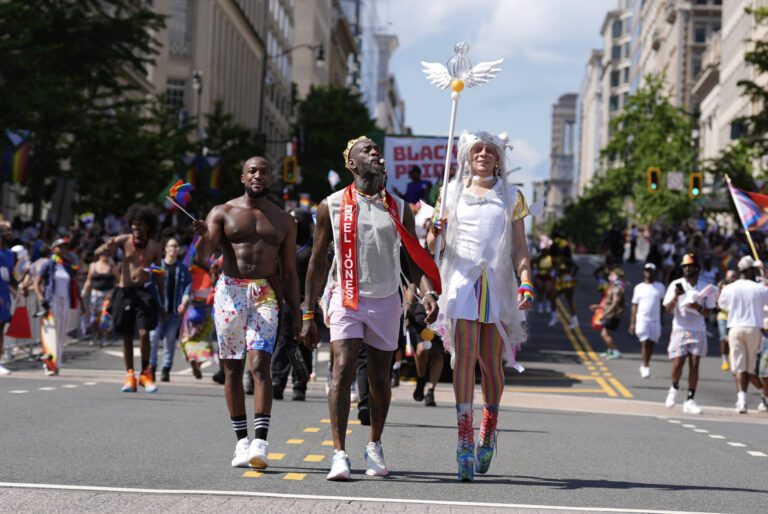The Intensifying Backlash Against Pride Month: An Examination of Current Trends
A Growing Discontent
As Pride Month approaches again, a noticeable backlash is emerging, with some attributing these sentiments to the socio-political climate fueled by the Trump administration. Others suggest that elements of the LGBTQ+ community, particularly the "T" and "Q" in LGBTQ+, are alienating potential allies for the first time in decades.
Corporate Retreat from Pride Events
- Many corporations are now retracting their sponsorship of Pride events, reducing merchandise related to Pride, and scaling back advertising efforts.
- Recent data indicates that support for gay marriage among Republicans has plunged by 14 points over the last three years.
Perception of the LGBTQ+ Rights Movement
Some individuals within the gay and lesbian community express concerns over the current direction of the LGBTQ+ rights movement. They argue that the movement’s adherence to far-left ideologies, including controversial stances like allowing transgender criminals to be housed in women’s prisons, is deterring broader popular support.
Brad Polumbo, a center-right YouTuber and journalist, states:
"You’re with us 100 percent on every issue or you’re a bigot."
According to Polumbo, this viewpoint has infiltrated corporate America and social platforms, leading to diminished interest in Pride Month festivities.
The Link to Democratic Agenda
Polumbo suggests that the community’s increasing affiliation with the Democratic agenda, particularly concerning radical ideas about gender, has contributed to a backlash against Pride Month:
- Medically transitioning minors: A contentious subject that has drawn criticism from various quarters.
- Biology in Sports: The debate surrounding the role of biology in sports participation remains highly divisive.
Conflicting Elements within the LGBTQ+ Community
Jamie Reed, a whistleblower and executive director of the LGB Courage Coalition, emphasizes that the backlash is not solely editorialized as a consequence of conservative actions. Instead, she posits that corporate hesitance stems from internal conflicts:
"Corporations are using this as a get-out-of-jail-free card, as a way to back away without really talking about the conflicts that are present."
Polarizing Views on Trans Rights
Numerous polls reveal that a significant majority of Americans oppose several progressive positions associated with trans rights, including:
- Transgender participation in women’s sports: Nearly 80% of Americans oppose this practice, revealing widespread concern over fairness.
- Many Americans also oppose transgender surgeries and hormone therapies for minors.
Yet, many LGBTQ+ rights organizations dismiss this opposition as bigotry, leading to a growing divide.
Crossroads of Gender Discussion
- Governor Gavin Newsom acknowledged fairness issues concerning transgender participation in women’s sports but refrained from taking action against it.
- High-profile controversies involving individuals like J.K. Rowling, who have been labeled transphobic for advocating women’s rights, highlight the tensions at play.
Public Sentiment Shifts
Many within the LGBTQ+ community express concern that they are being unjustly associated with radical ideologies they do not endorse. Both Polumbo and Reed indicate that mainstream Pride events may not embrace their moderate views.
The Culture Wars Reignite
In a recent essay, Andrew Sullivan lamented the resurgence of gay rights as a culture war issue, emphasizing that the initial push for equality focused on inclusion without disrupting existing social norms.
Potential Future Implications
The 2024 presidential campaign has positioned transgender issues front and center. A widely-discussed ad highlighted the contrasting views on gender between Kamala Harris and Donald Trump, stirring debates that resonate deeply within the American electorate.
"When we have pronouns and boys in girls’ sports and kids being read Puppy Parade in kindergarten, that’s what the backlash is against," asserts Reed. "We wanted to participate in society, not to impose special accommodations."
Conclusion: Charting a Path Forward
As the LGBTQ+ community grapples with rising discontent, voices within the movement advocate for a reassessment of radical positions. Polumbo, who sees respectability politics as essential, suggests a possible disconnect between traditional LGBTQ+ aspirations and more contentious contemporary issues.
- He believes that many members of the gay community are everyday citizens contributing positively to society, and that it’s crucial to remember this fundamental reality amidst the noise of radical debates.
The ongoing shifts in public sentiment, the approaching election cycle, and the conversations surrounding LGBTQ+ rights are set against a backdrop of polarized opinions and significant social change. As the discourse evolves, it remains essential to consider all viewpoints and work toward greater understanding and acceptance in the broader community.
For further insights and statistics on LGBTQ+ issues, visit Pew Research Center and Gallup Poll.


